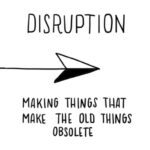
One of the more challenging skills to help develop in a founder, is being able to discern b.s. from experienced and valid advice. As you might imagine (and I hope you can relate from the all too prolific frequency with which this happens), it’s particularly difficult to know how to put questions back on a person from whom you’re seeking capital.
We live in a society in which we’re led to believe that the accumulation of wealth = success, or that the popularity of a brand or personality means they know what they’re doing; first and foremost, appreciate as a founder the idea that if anyone’s advice was “correct,” they’d be doing it, and you’d be out of the job.
Article Highlights
How to Validate the Advice of a VC
Over the years, I’ve developed the habit of using 3H to discern if any advice is valid, and I want to share that with you because I’ve been increasingly asked how to deal with accelerators and investors that don’t seem to know what they’re talking about. At the root of the challenge of validating advice is the social norm of developing a good relationship with people; requiring, avoiding calling them out, avoiding making people feel like they’ve been caught with their pants down, and truly, being genuine in trying to work together.
I’m sure, or rather, hope, you’ve heard the advice about fundraising, “When in need of funding, ask for advice, and if you’re seeking advice, ask for funding.”
Inherent in that, recognize, that advice from investors is most likely valid advice about what is ideal for them. Drawing from their experience, their job, and the expectations of raising and managing funds, what they advise WHEN in the context of raising capital, is experienced advice. But that doesn’t mean it’s right, how it should sit with you is greater merit given the source. In my experience, the other most likely form of advice from an investor is advice given because they are trying to help you overcome something but it might be something with which they’re not familiar – they know something is amiss so they’re offering some advice that might help.
How then do you validate if advice given actually comes from a place of experience and know-how? That it’s valid? Rarely (largely, if you think about it), is advice from an investor based in experience with what you are trying to do.
The risk that creates for all of us is that when entrepreneurs take investor advice on the surface, it’s likely misleading, wrong, or at least, inexperienced.
Bobby Goodlatte, Managing Partner at Form Capital, shared this wonderful tweet that fueled my pen to paper, “A VC who gives no advice adds far more value than one who gives bad advice.”
When Advised (and really, this applies to all advice!)
3H: How, Help, How?
- Verify advice/recommendations by asking how to do it
- If they can explain how, ask for help
- If they ask how you did anything, it’s okay to have that friendly attitude that kind of doesn’t understand what they’re asking. Why they’re asking something they should know how to do. “I’m sorry, I don’t follow, the same way everyone would …”
VCs often network for good reasons. Might be nothing more than that; they’re trying to help.
They might genuinely be interested and wanting to help, to stay connected, but their advice isn’t that great.
They might be fishing for intel.
And let’s be realistic, you and I know, they might have terrible advice.
3H gives you confidence in dealing with any of those possibilities. Let’s explore each by going through them in some detail in reverse order:
Are they fishing?
You feign misunderstanding when they ask HOW YOU ACCOMPLISHED something because they might want to know how for a reason (competitor?). Instead of calling that out, which is awkward, you are completely in the moral right to imply and establish that you know better than the VC, by making it seem so and being confused why they would be asking such a thing of you. In fairness, they should know how to do things valuable to startups… so why are they asking?? Are they fishing? Do they really not know? Are they trying to prove for themselves that you know what you’re talking about?
“I’m sorry, how we did acquire those customers?” in response, for example, tends to cause a reaction that gives you insight to what the inquiry is trying to accomplish.
Help us
After all, you’re there to raise capital, or at least in other ways secure some resources to help you be successful, so when advice is capably followed up with HOW TO do what is being advised, ask for help!
When they can and do tell you HOW to do something, they’re the one with the funds and they obviously have the know-how so in recommending a valid possibility; if truly wanting to help, they can, somehow: recommend a hire, refer to an advisor, or why not even ask for less capital, to do what they’re telling you will work.
How do we do that?
“That’s great advice and of course we’d love to get that done but that’s not my skillset, how do I start and make that work?”
Why ask that besides the obvious reason that you need to know?
They very well may not have a clue. Their advice might be crap, it often is. Having the check dangling, having acquired the funds, or in other ways being successful, absolutely DOES NOT mean that their advice is in fact valid. Don’t let advice sit there for you to then have to figure out how, with what resources, and worse, determine if all that effort is worthwhile, ASK THEM HOW TO DO IT.
If they can’t explain how to do what they’re advising, is the advice that you do something really based in experience?
The 3H – How? If good, Help. And, why are they asking *us* How??
Really rather simply, always remember HOW and ask how-to of every recommendation you receive.
A favorite example to explore together: Too often, Angel Investors and VCs will give the bad and unhelpful advice of “focusing on customers,” and if you’ve had that experience, you know, they’ll usually leave it at that alone, because of course, it sounds right.
But, hol up. As a startup, we don’t have customers; certainly, not many we can talk to…
“Great advice! How do we get more so we can do that?”
If they can’t explain how to get customers for what you’re doing, how valid is advice that such customers are the right focus? When it’s not even clear who the customers are, where to find them, that they’ll agree there is a problem/opportunity, and how to start that conversation… why would focusing on customers be good advice??
Yes, I said it’s often bad and unhelpful advice to focus on customers because you’re not an idiot, you have experience in your industry (I hope), and it’s well known that having an experienced team and understanding the market and competitors, informs best what a solution should be. Anything that meaningfully creates value can be monetized, and “The customers is NOT always right!”
If and when they can indeed explain HOW to get more customers and accomplish what is being advised, it puts the conversation back in that loop of why you’re seeking advice — getting help … such as, asking for some money if they are certain that that focus on customers is good advice.
–
I’m going to continue to provocate, flip conventional wisdom on its head, and focus on flaws in the startup ecosystem (and what you’re doing) more than merely rehashing that things are great. When we know most founders will fail, I find it helpful to explore more of what will help us all avert failure. If that’s meaningful for you, do join us at mediatech.ventures









Nice write up. I VERY frequently remind startups that “relevance” is also key.
We see “advisors” for startups who offer services (sometimes at fee or for equity) that have “27 years at Oracle” as their big resume statement. Seriously?!
27 years at Oracle May teach someone about innovation, maybe, but I can gurantee they have never missed a paycheck to make employee payroll.
Missing a paycheck for the family in order to pay employees is sort of my key metric for who is “relevance”.
Vertical experience helps but I swear, having experience at the exact inflection point along the technology (market) adoption curve is THE most critical (after morals and ethics).
Patrick Talley cheers for this, seriously. Took a number of years in Austin to figure out who has startup experience vs. executives and consultants seeking to sell something to founders.
Love this — the sign of a startup founder? “Missing a paycheck for the family in order to pay employees is sort of my key metric for who is “relevance”.”
As a recent founder as well as advisor to startups, appreciate the insight and agree with your advice—and appreciate very much the honesty as you are correct on all points!
Love the article a lot.
One sentence caught my eye.
….
VCs often network for good reasons. Might be nothing more than that; they’re trying to help.
…
They might be fishing for intel.
….
I guess everyone understands what gathering intel means. However I am interesting about details buried deeper into this statement.
What kind of inter is that? Business model, financial details or proprietary details about product?
What could be purpose of the intel gathering? Internal general use, or use in negotiations or external sharing of information with other people?
For example, VCs pay a lot of attention at the founder’s and team’s background to understand can they carry the idea through the finish line (IPO for example). If they don’t like this team, is there a possibility they will take project to some other team for execution? Have you seen or heard about situation like that in your VC practice?
I understand there are a lot of questions here and appreciate your time to discuss these type of questions with founders and other people interested into startul world.
Sasha Radovanovich It would be great to connect but Linkedin isn’t letting me add you. Do you mind sending me a connection request so we can be connected?
I think, Sasha, you’re answering your own questions; that yes intel gathering is for general use, negotiations, and sharing. It’s certainly also just a natural part of building a relationship and getting to know the founders – in my experience, a founder being hesitant to give information is a red flag. Gathering what? Anything really; due diligence requires that an investor know everything about the founders and the company in which they’re considering investing.
Do VCs take ideas to others? Not in my experience, no; but then again, I’m a stickler about being explicit and clear in the use of the word Angel Investor or VC. VCs run funds, publicly; they’re not going to last long if they can’t keep the confidence of the people in their network. Angels, too — if someone says they’re an Angel Investor, they damn well better be invested in 15 or more startups, with disposable wealth above and beyond their typical portfolio; someone saying they are one, just to be in a startup or two, is misleading. An Angel, an actual Angel, would no more share ideas than a VC.
Now too appreciate, all that said, *IDEAS* are worthless and I’m also a big advocate of the notion that ideas can’t be stolen, they aren’t owned.
Customers want faster horses. Investors want to have interesting conversations about their latest find at cocktail parites. Founders? Not sure what we want, but for sure it has to be really cool…
Founders… we want the world to be better than faster horses ?
Paul O’Brien always making me expand my mind…seriously, I have to read your comments slowly to let them sink in lol.
Love the deeper aspect of point #1 – on a more tactical note I’ll even add that it can refer to lining up a potential acquirer before you start aka the build to buy approach. Shortens the journey and makes the successful exit more likely. Easier said than done.
I see you taking your VC peers to task – I have less authority there but do appreciate having a trustworthy, open, and priniciple based approach to life in general. We all need to be the kind of person we’d love to deal with.
Thank you
Jawad Ali, MD I’ll write them more slowly
And yes! That forward thinking means knowing about acquisition AT LEAST in the sense of A) do you want to? B) is it possible? C) from whom and what might that look like?
Acquisition certainly doesn’t need to be lined up at this point, but knowing intentions is critical! I talk to founders all the time who “don’t want to exit.” Well, great! But that determines certain things about venture capital.
Paul O’Brien lol indeed…great mic drop.
Interesting you’re seeing a lot of founders not wanting to exit, maybe it’s a sector thing.
Had several conversations today about being forward thinking and how that can be a real differentiator/accelerator.
It didn’t take me long to realize that my background in screenwriting offered one huge advantage as a founder, how to take notes.
I love your framework here and would offer this example from screenwriting. Often, the note being given isn’t actually the issue that needs to be addressed. Perhaps something feels off in the 3rd act but it is because of an issue in the 1st act.
Asking the 3Hs seems like a good way to make this determination and how to address it in the VCs perception of your company.
Thank you for sharing this.
[…] I constantly remind founders to take advice with a huge grain of salt, and question everything they hear, but in this case, I replied so confident that I told them, “I am 100% certain in my answer, […]
Very insightful. I’ve never heard of 3h, but I can certainly see how it is helpful.
I also can imagine the amount of founders who see the somewhat flashiness or seemingly experienced aura VC types frequently have, and live and die by their word. I’m humble enough to admit as a first time founder, I get a bit “star struck” when networking with VC.
I love that you pointed out money/success doesn’t necessarily mean they’ve got it all figured out. I think too often we forget that.
Particularly in startups. Very few venture capitalists have first-hand startup experience, fewer still are at least marketers or engineers more capable of helping with what matters.
[…] investors not by ignoring it, but by having the confidence to push back and validate that advice by asking them how. With any advice you receive as a founder, validate if the person advising has any idea what […]
[…] Analysis is where fantasy gets murdered early, which is a mercy, not a flaw (when people criticize your startup meaningfully, it’s a kindness from an analyst who […]
[…] Analysis is where fantasy gets murdered early, which is a mercy, not a flaw (when people criticize your startup meaningfully, it’s a kindness from an analyst who […]